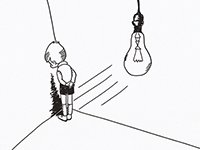Loving massages, touches and hugs are now associated with a whole range of positive effects.

More and more new studies make it clear – physical contact is fundamental!
From early child development, to adult social behavior, to general health or team sports, there is hardly an area of life that touch and physical contact does not impact.
How do we know today how important touch is?
It was not always known that touch was more than just a mechanical act.
Until the 1950s, young mothers were advised by psychologists to reduce physical contact with their babies to feeding.
Cuddling, petting and comforting were considered negative for children’s development.
…Because it would make them moody and spoiled…
 Slaps, spankings and other chastising measures, on the other hand, were understood as useful and positive and were explicitly recommended.
Slaps, spankings and other chastising measures, on the other hand, were understood as useful and positive and were explicitly recommended.
Behavioral scientist Harry Harlow was one of the first to study the importance of touch and physical affection in the 1950s.
To do this, he performed experiments on rhesus macaques.
Even though Harlow’s experiments are unethical and very questionable from today’s perspective, they clearly demonstrated at the time that physical contact is absolutely essential for healthy psychological and physical development.
Research has begun to take an increasing interest in the effects of touch.
Why does touch feel so good?
This has to do with the reactions that take place in our bodies.
Our skin is the body’s border to the outside world. It is our largest organ and is equipped with millions of receptors.
With them we sense cold and heat, textures, structures and pressure, but also touch and tenderness.

Through our nerve pathways, the signals from the skin receptors are sent directly to the brain.
Interestingly enough, not only the facts about the touch are transmitted, such as the place and the type of touch – no. The touch is also evaluated emotionally.
There is also an emotional evaluation of the touch. Is it pleasant or unpleasant, positive or negative?
If the brain evaluates a touch as positive and pleasant – as with gentle and slow stroking – it activates the so-called C-tactile nerve fibers.
Activation of the C-tactile nerve fibers leads to the release of the happiness hormone oxytocin in the brain. At the same time, our sensitivity to endorphins, the body’s own opiates, increases.
The stress hormones are reduced. Our breathing and heartbeat slow down. The body relaxes, we calm down and feel happy.
Thus, soothing touch can positively influence our emotional state.
Touch can do even more!
Various meta-studies conducted recently have shown that loving massage and mindful physical attention help reduce anxiety, counteract depression, and even relieve physical pain!
People who are hugged every day are less susceptible to catching colds.
One of the studies found that just 20 seconds of hugging and 10 minutes of hand-holding lowered blood pressure and heart rate.
The authors of the study are convinced that regular physical contact can significantly reduce the risk of cardiovascular disease.
Let yourself be touched regularly and live healthy and happy!


